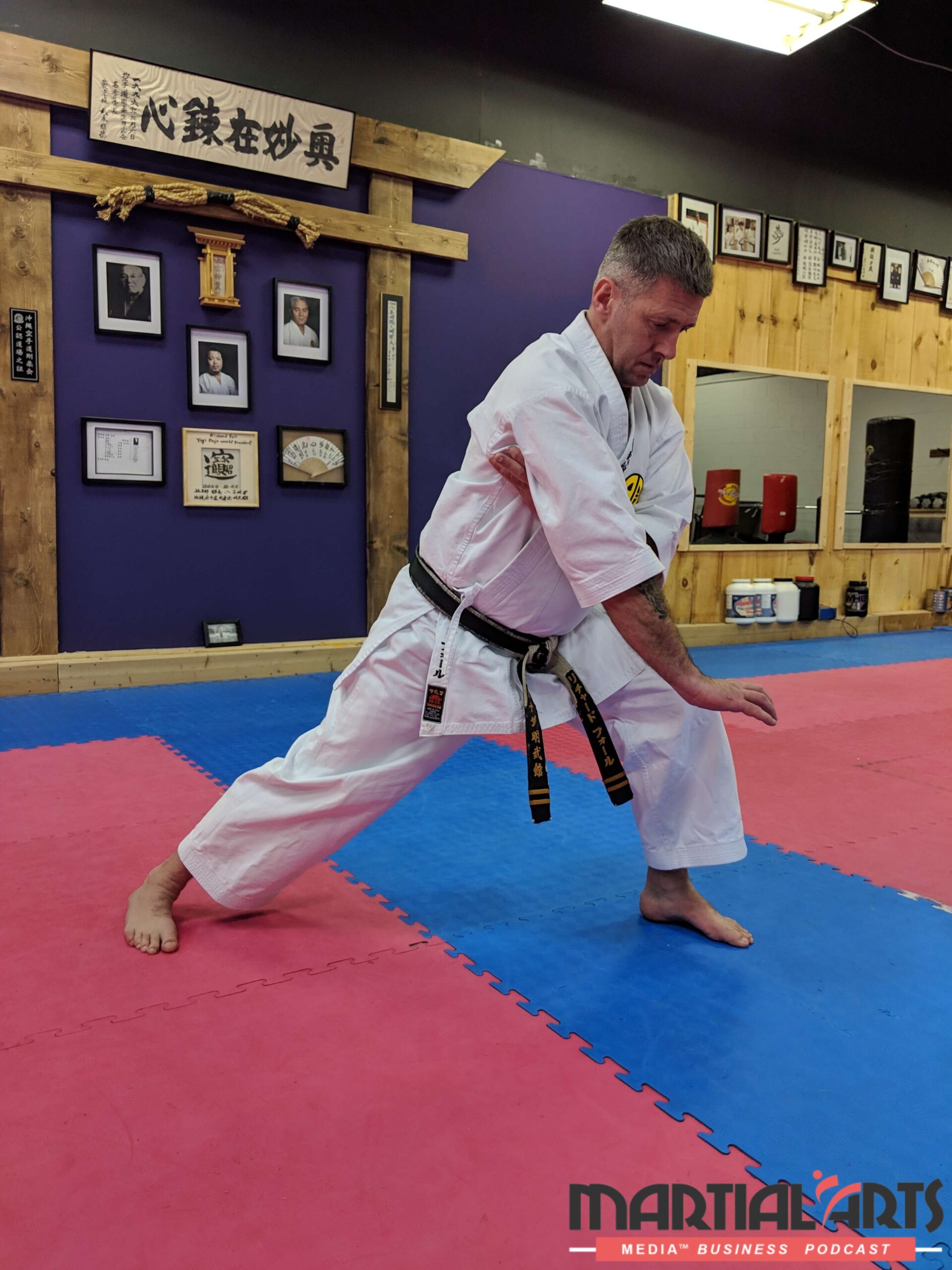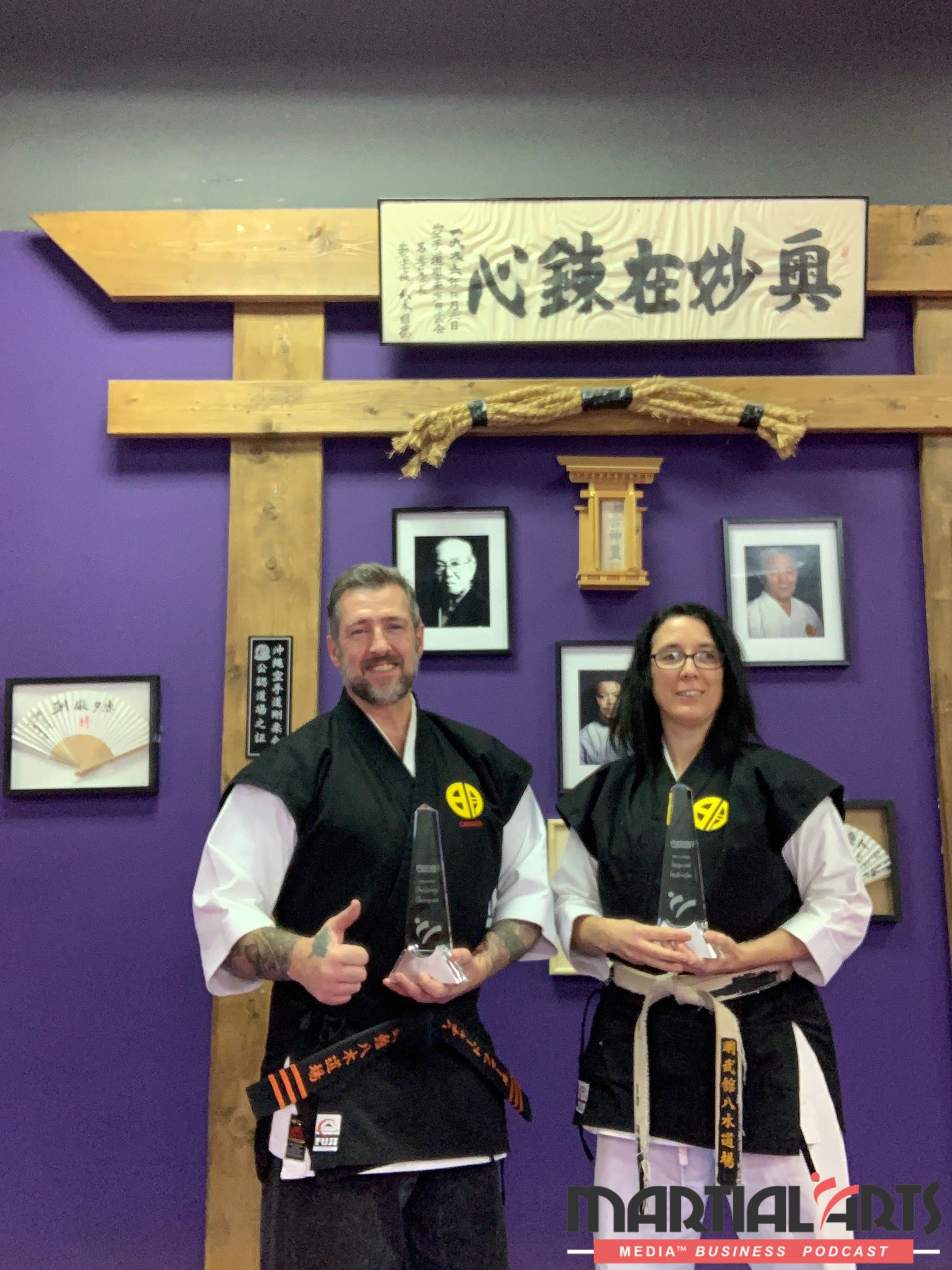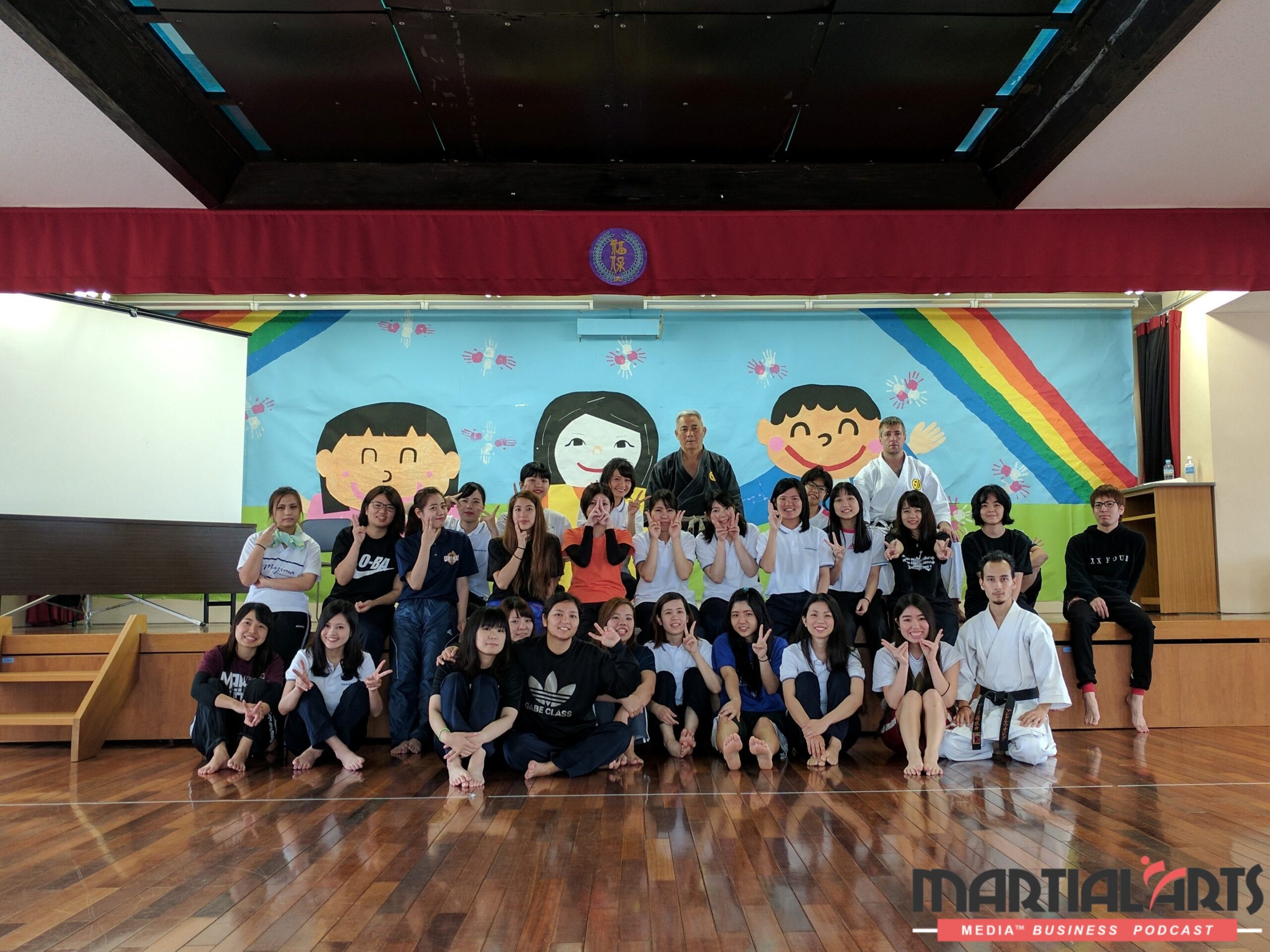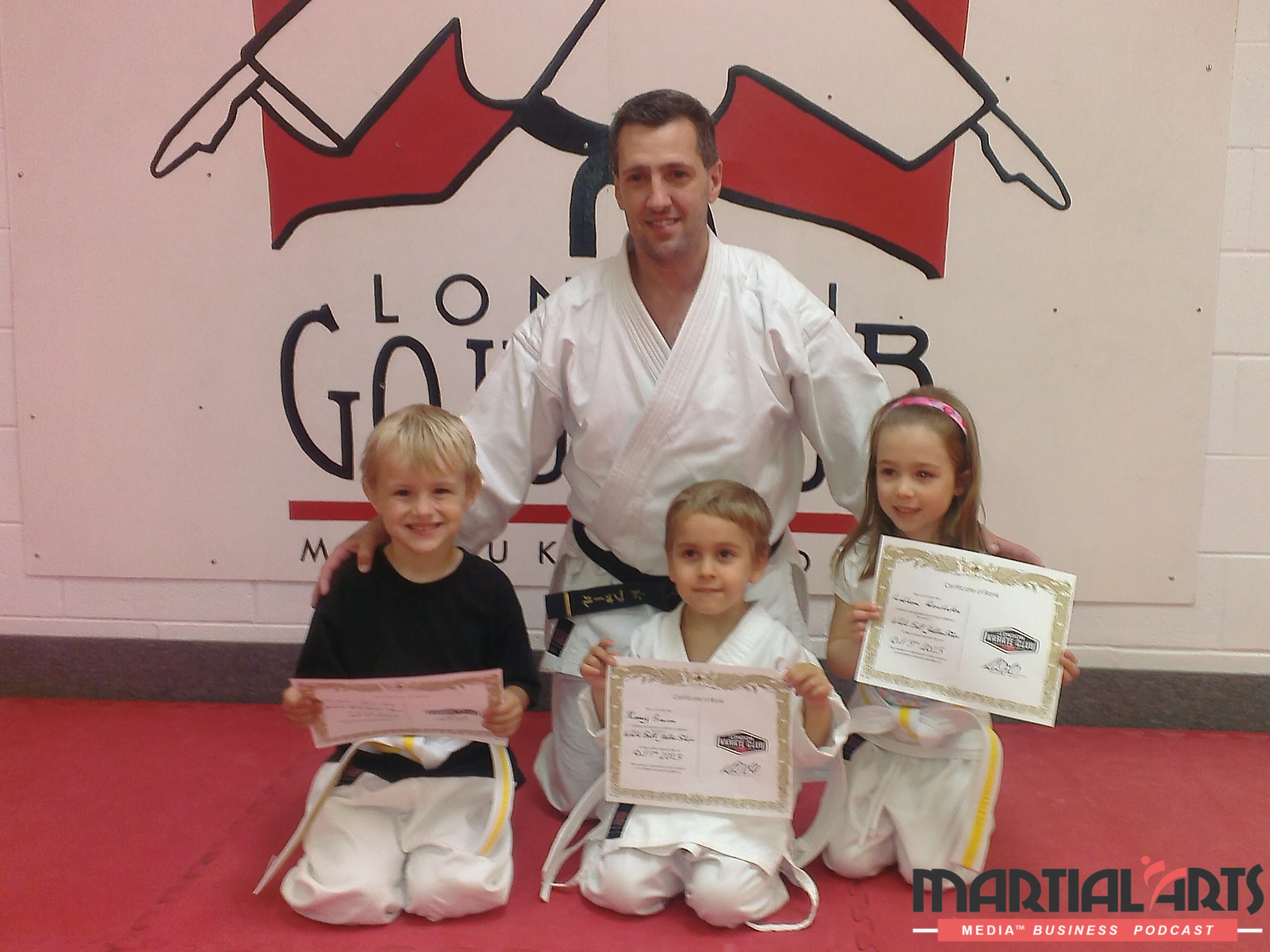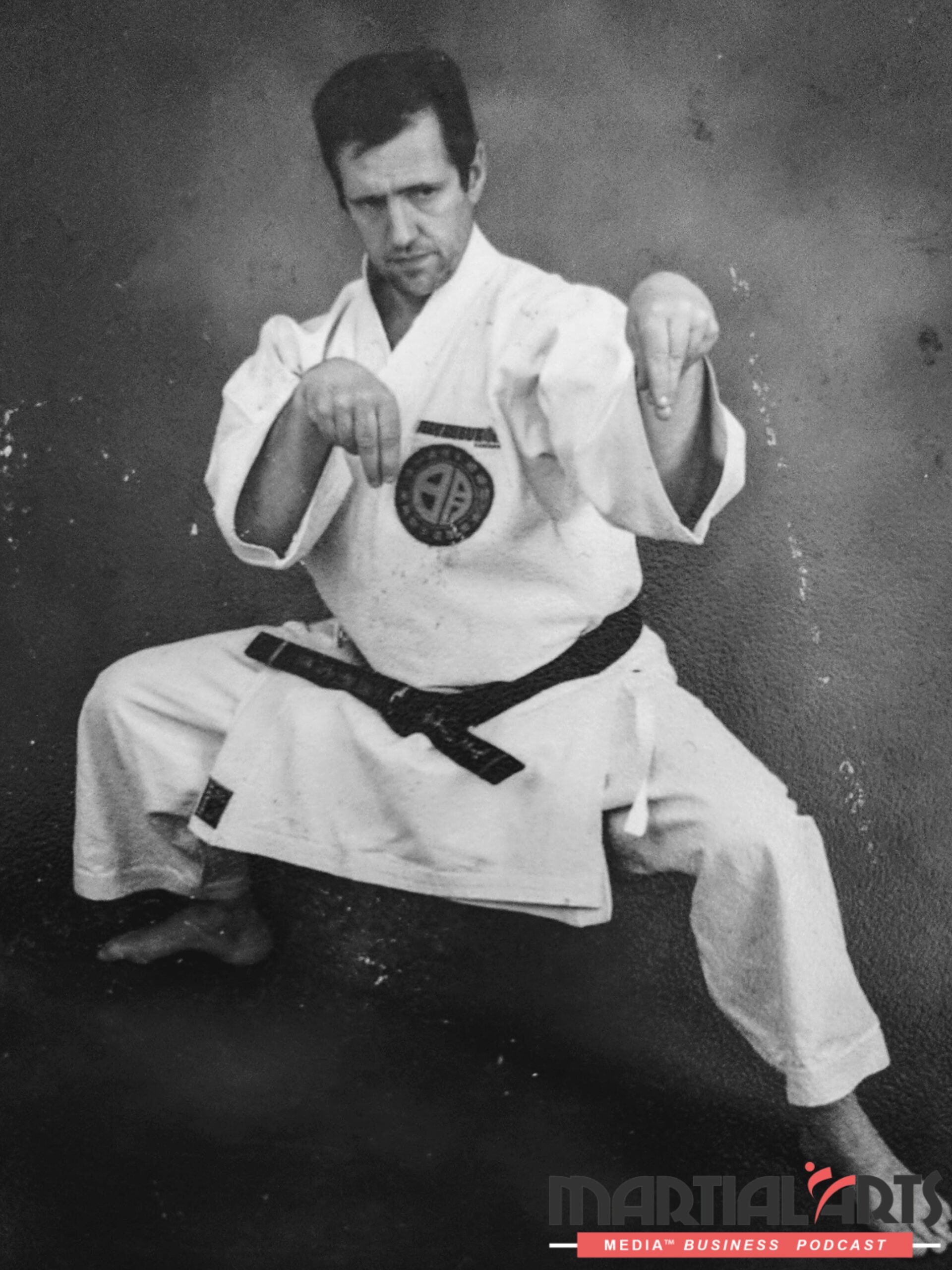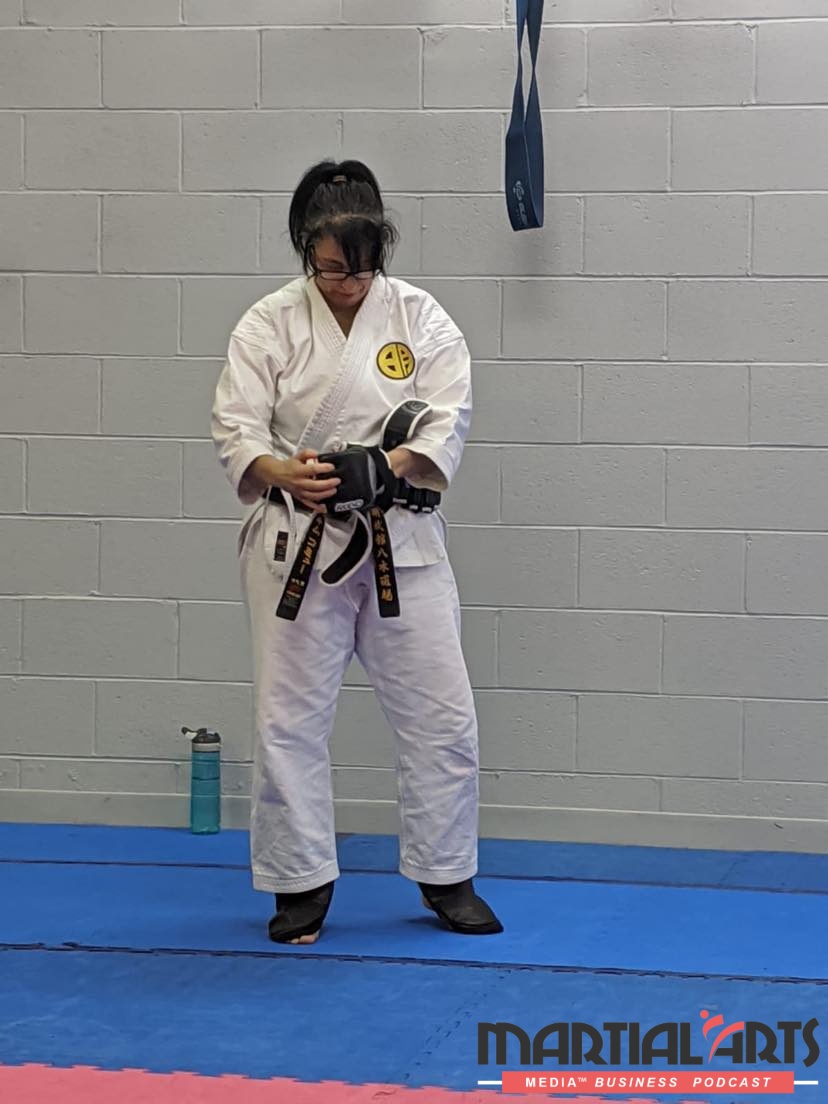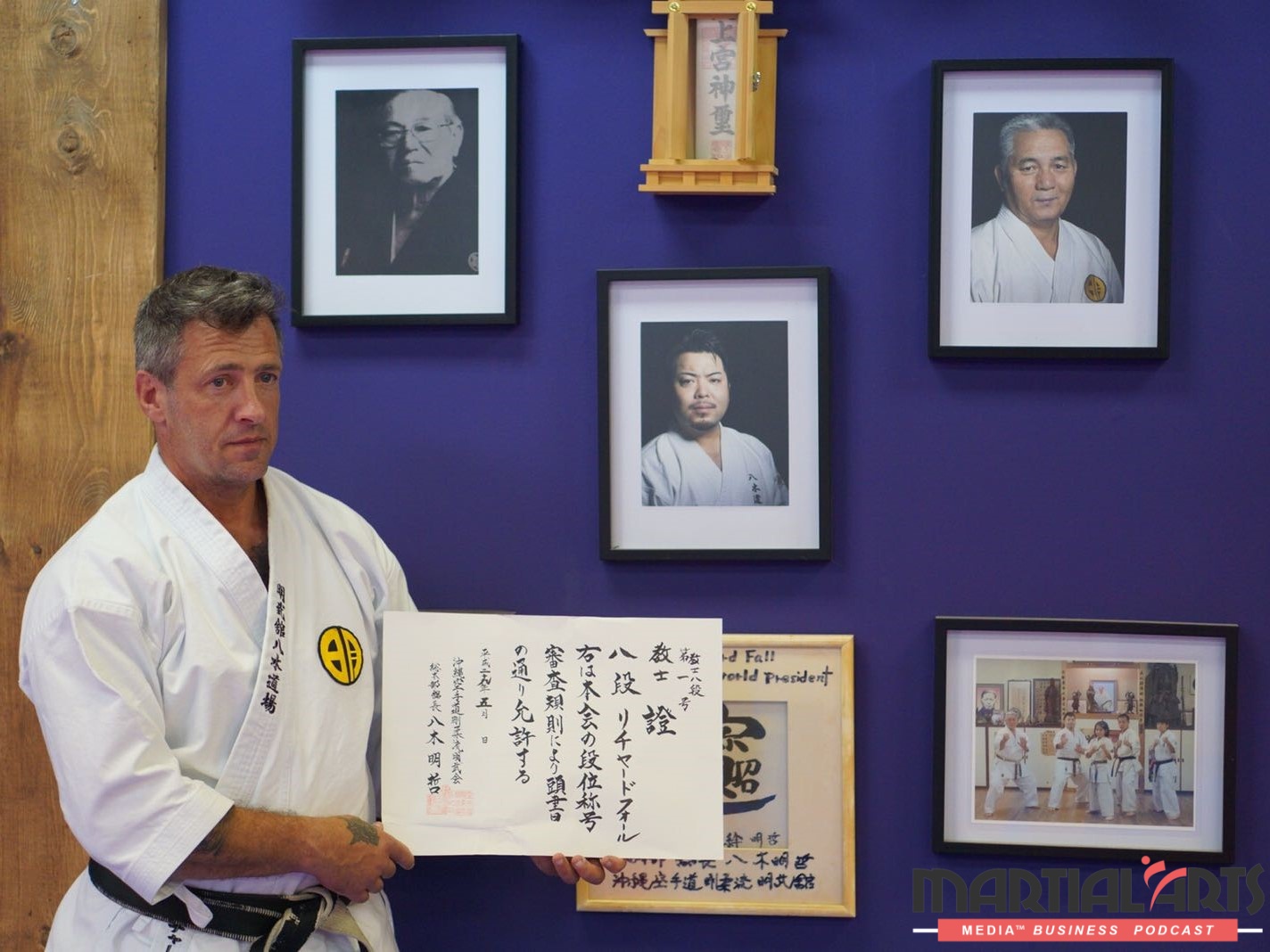An irresistible martial arts offer can be the ‘make or break’ of any promotion to attract new students. Follow these steps to turn your offers into winners.
- Being uber specific with what’s included in your irresistible martial arts offer
- Should you give away free items with your martial arts offer?
- Do this and you instantly increase the value of your martial arts offer
- What’s the best price for a martial arts paid trial offer?
- This turns any martial arts offer into a ‘no-brainer’
- And more
*Need help growing your martial arts school? Learn More Here.
TRANSCRIPTION
Hey, it's George Fourie. Welcome to the Martial Arts Media™ business podcast. In this episode, I'm going to be talking about irresistible martial arts offers.
So what is an irresistible martial arts offer? And do you even need a good offer? Well, of course, you do. And that's what this episode is all about. So we're going to dive into the details of what it is that you actually need to include in your offer. Does it need to be free? Does it need to be paid? What do you add? Do you add different items? How do you package it and so forth?
And I can tell you what, with all the school owners that we've worked with over the years, whenever somebody shares with us a campaign that's just not working, or they're struggling to get traction on the ads, or just a general internal promotion that's not really getting results, it's almost always due to a broken offer.
So you can run a really bad campaign with a great offer and still get great results, but you can't run a great campaign with a bad offer. So we're going to dive into the details on how you go about creating an offer, what it even is, and how you craft it so that it gives your future students the confidence to take the first step and start training with you on their martial arts journey.
Hang around to the end. I'll share with you where you can download our PDF, called The Irresistible Martial Arts Offer, and it will show you step-by-step the process that we go through to create your irresistible martial arts offer in just a few minutes.
All right, let's start with the basics. What actually is an offer? Well, an offer is, and if we go straight into referring to martial arts terms, it's a combination of how you package different free classes with potential free items. And how you package it in a way that the value exceeds the price if it's a paid trial or the actual value that's being presented for the commitment that needs to be taken to take advantage of the offer.
So that brings up the question, should your offer be free, or should it be paid? Well, it really depends, and I'm not going to dive into that, but if you do go to martialartsmedia.com/124, I did cover for a recent episode on free trials versus paid trials for martial arts and comparing the different platforms and when you should use which one. But either way, it's always important that the value exceeds the actual commitment or the financial commitment of the offer. So that's a bit of a bonus tip, I guess.
So I'm going to cover five points of what actually makes an irresistible martial arts offer. All right, let's dive in. Number one, be specific. Be specific with anything, and I think this is just copywriting in general, and this is if I say copywriting, I mean, sales copywriting, not copywriting, that's like the legal thing, normally at the bottom of a website, right, with different terms.
So when crafting good sales copy, it's important to really be specific and in a way almost dumb things down. There's a rule in copywriting, it says you've got to write for third-grade level because you don't want to leave people to look at something and have to think about what you just wrote.
So it's important to make things so specific and so simple, that even the obvious things that you think people would maybe know, that you still state the obvious, right? So you've got to state the obvious. You've got to be super specific in how you present what is included in the offer. The minute someone's got to think, you potentially just lost them because now they're trying to figure out what your offer is.
So being super specific is very important. So what should you be specific on, well numbers and what they get. So let's start with the beginning. What are you giving away? Is it a couple of classes? Is it one day? Is it one class? Is it five classes? Is it seven? Is it one month?
If I had to be technical, if I had a month trial versus a four-week trial, I'd rather have a four-week trial because four is more than one, right? It's a little play on words, but guess what, crafting an irresistible offer, a lot of the mechanics is having a well-structured play on words so that the perceived value does increase, right?
So this is partly important, it's not going to be the make or break. You can't trick someone into thinking that it's a good offer when it's not, but it's important to have a look at some of these elements. All right. So that's number one, be specific.
Number two is what are you giving away? What is included? Is there a free item included? So let's assume you are running a paid trial. And in fact, most of these elements are references to you running a paid trial. Although there's a lot of overlap that you can use if it's a free trial as well. If it's a free trial, you might not be giving away a free item, unless you've got a good backend process of where you sign people up.
So on the front end, you're running a paid trial, for example. So let's say you include a free item. Including a free item is really important, and it does increase the perceived value of your offer. And this might sound funny, but it also helps people rationalize the value in their mind because let's face it, how can anyone determine what the value of a martial arts class is if they've never actually taken a martial arts class? I mean, we'd all want to think, yep, everybody's just going to love it and they understand the value.
But if I'm looking at an ad or promotion and I've never taken a martial arts class before, then how do I know what the value is? But if there's a free T-shirt, a free uniform, or free gloves, that's something tangible I can actually visualize. And in my mind, I can rationalize the value of that item. All right. So number two, include a free item.
Number three, state the value of the item. Okay, now sometimes we break this rule and I'll cover why that is in point five, but include the value of your actual item. So I don't know an item's value unless you tell me what it is, right? So if there's a free uniform, well what is the value of that uniform? I need to know that this is a good, valuable offer. So if I'm paying, let's say 39.95 for the offer and the uniform is worth $85. Well, now I can immediately actually see that the offer is pretty valuable and it's a good deal.
All right, now I'll tell you what the rules are when we don't use this and when we do not include the value of the item, is when the value of the item is actually less than what the paid trial is worth. And I'll show you how we get around that in point five. All right. But in general, it's good to include the value of the item, right?
Number four, pricing. So again, obviously for a paid trial. For a paid trial include what the pricing is. Now, what type of numbers do you use? Well, odds typically convert better than evens when you're running ad promotions. Don't ask me why. I didn't make this up, I didn't invent this, but this has been tested by so many marketers online and typically the odd numbers convert better than even numbers. That's just a given fact. I like to start with facts and look, it's always good to prove your own tests wrong.
So if you do want to test even numbers, go for it. But rather start with a tried and true and tested first before you try and prove it wrong by going in a direction that's not really proven. All right. So what's up in numbers. Well, if you download the worksheet, the PDF that we included in this episode, we'll actually share with you the price points that we've tested the most. We do that in free items, in classes, in items, value, etc. And what we're discussing here of course is the price points. So I'll share with you how you can get that in just a minute. All right, so that's point number four.
And number five, number five is we talk about either the savings or the total value. So we use this if number three just doesn't look great.
Let's say our offer is 69.95 and we're including a free T-shirt, that's worth 20 bucks. To mention the 20 bucks included, it just doesn't give so much of a wow impact. So here's what we do instead, we talk about the total savings or the total value. So how does that work? Well, if I'm giving away four weeks' classes and I'm including, let's say just a free T-shirt. So what we'll do then is we'll calculate the value of the four weeks of classes and included with the T-shirt and now we can say in brackets, total value X. Or what we could also do is we could look at what they would save.
So what would it cost them to train those four weeks and buy the free item? And we will deduct that, and then we'll work out what the savings is, right? So that is an alternative for you to use. And that's really it.
Now, if you want to get practical and you want to get stuck and you do want to create your irresistible martial arts offer, then what you want to do is just download the PDF and we'll show you exactly what numbers we use, what type of free items, what price points, and exactly how you can go and structure your irresistible martial arts offer so that you can increase your conversions because that's what it really is about.
It's really about including a great offer in your ads so that when your potential students look at it, they can go from curious to serious, to signing up much easier and much faster. And you get much better results with your ads. All right. So where do you get this? Go to martialartsmedia.com/128, so that's the number 128, and just have a look below the video of this podcast, you'll find a link where you can download the free PDF, Your Irresistible Martial Arts Offer. And go ahead, let us know how you go with this.
And if you've got value from this video, don't forget to share it and I will see you in the next episode. Have a good one. Cheers.
Here are 3 ways we can help scale your school right now.
It's our new private community app exclusive for martial arts school owners, with top courses, online events, and free resources to help grow your business. Click here to download for iPhone or Android (any other device).
2. Join the Martial Arts Media™ Academy Membership and become a Case Study.
I'm working closely with a group of martial arts school owners this month to get to 100+ students. If you'd like to work with me to help you grow your martial arts school, get started with our 7-day risk-free trial – Click Here
3. Work With Me and My Team Privately.
If you would like to work with me and my team to scale your school to the next level, fill out the form and apply HERE … tell me a little about your business and what you would like to work on together and I'll get you all the details – Click Here
Enjoyed the show? Get more martial arts business tips when you subscribe on iTunes for iPhone or Stitcher Radio for Android devices.
***NEW*** Now available on Spotify!


